Binge eating is a lot of things. It can be a way to cope with stress, a response to an emotional trigger, a habit that has been built over years of trying different diets and weight-loss programs, or all of the above.
Binge eating can also be scary because it doesn’t feel like you have any control over what you’re going to do next time the urge strikes.
But there are ways out! Intuitive Eating is a powerful path to recovery.
In this blog post we’ll discuss how binge eating affects your body and mind as well as what you can do about it so that you have more peace with food in your life.

What is binge eating, exactly?
Binge Eating Disorder – abbreviated BED – is a diagnosable and treatable disorder. BED is serious and can be life-threatening.
BED is an eating disorder in which individuals have recurrent episodes of overeating (usually very quickly and to the point of physical discomfort); loss of control during the binge; feelings of shame, distress, or guilt afterward; and failure to regularly utilize unhealthy compensatory strategies (such as purging) to counteract binges.
We aren’t talking about an extra slice of pizza or two; we’re talking about eating a whole pizza in an out of control type way and feeling terribly mentally and physically afterwards.
BED is the most common eating disorder in the US. If you suspect that you might have BED, please reach out to a professional for help.
If you’re ready to ask for help, the National Eating Disorder Association (NEDA) is a great place to start. You deserve help and support.
BED is not the same as overeating or binge eating – let’s illustrate the difference.

BED vs. binging
While the eating behavior – and resulting shame – can be the same, the difference is in how often they occur. For the behavior to be diagnosed as BED, the binges are happening on average once a week (or more) for at least three months.
BED vs. overeating
Binge Eating Disorder and overeating are not the same things. It is possible to overeat without bingeing. In BED, there are recurrent episodes of binge eating that occur at least once a week for three months. The individual will feel out of control during the episode and usually feels some form of distress afterward (e.g., guilt or shame).
Overeating is simply eating past fullness. You may not feel out of control, you may be enjoying a family meal (hey there, Thanksgiving!) or you might be overeating to offer yourself comfort because you’re feeling overwhelmed or anxious.
Eating past fullness once in a while is a pretty standard human behavior and isn’t something to be worried about or feel shame about.
A binge is somewhere in the middle; you’re eating well past fullness but this isn’t happening often enough to qualify for a BED diagnosis.
Even if you don’t meet the criteria for a BED diagnosis, you still deserve to have a positive relationship with food, eating and your body. Don’t feel like you have to meet a certain criteria to be worth seeking help.
You may be wondering: what is going on here that I feel like binging?
What causes binges?
There are many possible root causes of binges. BED is complex and nuanced and will never be solved by a “quick fix”.
The most important thing for you to know is that BED is not your fault.
BED has many root causes. None of them are your personal character defect or lack of willpower. All mental health disorders deserve the same care as someone who has just broken a bone or received a diagnosis of cancer or diabetes: it isn’t your fault and you deserve support and healing.
If we were to categorize the “whys” of binge eating, I’d pop them into one of two main buckets: emotional reasons and biological reasons. Why Binge Eating Happens: The 2 Types.
Emotional causes of binge eating
Some potential causes are trying to cope with difficult emotions, food rules/restrictions causing you stress or anxiety when breaking them, not getting enough sleep.
The people most at risk of having BED are those with a family history of the condition, as well as their own history of dieting, and psychological issues, including poor self-image.
Trauma is also a common risk factor for BED.
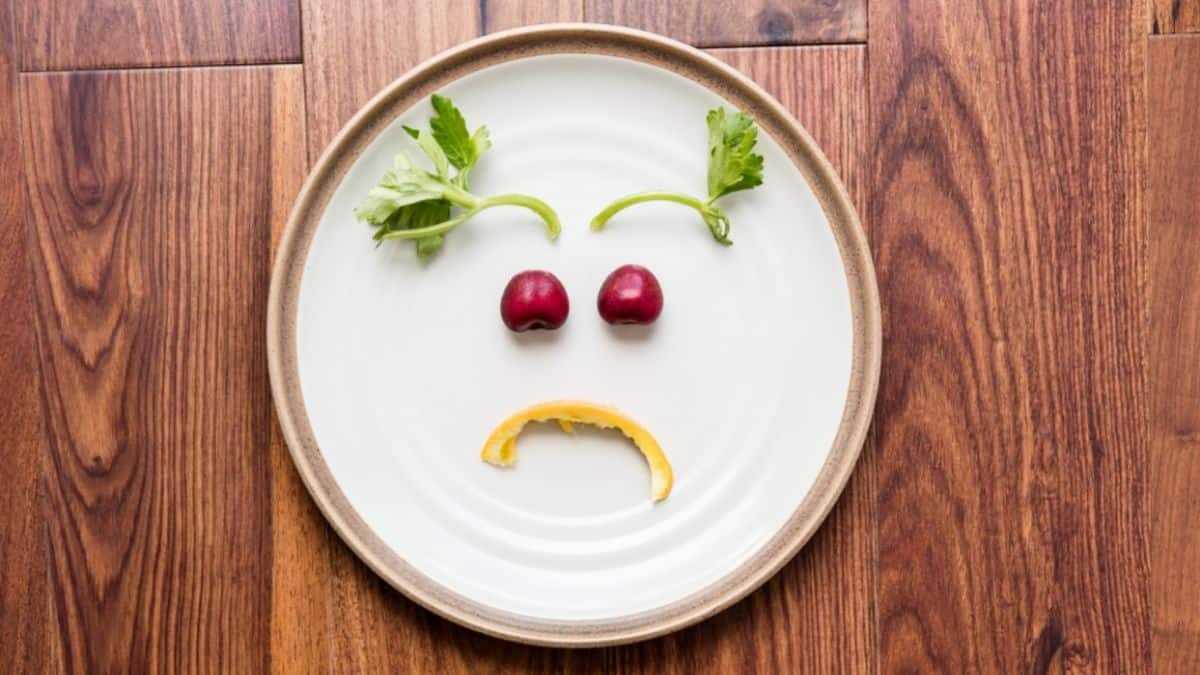
Biological causes of binge eating
Chronic dieting and food rules are the other main “bucket” of reasons why people binge eat. When you are not nourishing your body with the fuel that it needs, your body works dang hard to get your attention and compel you to eat.
And of course, most folks with BED have more than one root cause contributing to their condition.
What happens to your body after a binge?
The possible consequences of binge eating are far and wide: this disorder is serious.
Some consequences of binge eating include gastrointestinal issues, weight gain or loss (or no change), and mood swings. Not nourishing your body with what she needs to thrive impacts your heart, your nervous system, your digestive system, and more.
BED is serious: you deserve binge eating recovery.
Binge eating recovery is possible, but it is not a quick fix.
The first step on your journey is better understanding why you’re having the urge to binge, to begin with.
What to do after a binge?
First things first: be gentle with yourself. You didn’t binge because you’re a bad person or don’t have willpower. Take a step back and put on your detective hat: what happened leading up to the binge?
Next, reflect on what happened before and after. The key here? Judgement is not invited: stick to the facts only and then reflect on how you feel physically and mentally.
Lastly, let go and move on. Of course, each of these three steps are far easier said than done. I know that from my own personal recovery, but investigating these situations – without judgment – gives us information and clues about what changes will help prevent future binges.
For my full post on what to do after a binge, click here: What To Do After a Binge to Break the Cycle.

How do I stop the urge to binge?
As much as I wish I had a simple answer for you, binge eating is complicated, as is binge eating recovery.
I know from my own experience how miserable my life was while binge eating and how much work recovery took.
Finding the path to binge eating recovery involves getting to the root causes.
Chronic dieting (restricting foods) is one very common cause of binge eating. Here’s why:
Your body’s job is to keep you alive. If you keep thwarting your body’s signals that it is time for fuel, your body will work harder and harder to get your attention.
This is where extreme hunger can come in: your body is trying to catch up for the energy that you missed out on by not eating, or not eating enough. This extreme hunger is dialed up by a hormone called ghrelin, the “hunger hormone.” More on that in my blog post: The Truth About Extreme Hunger.
The post above also discusses how restricting food, and having extreme food rules, might cause you to become obsessed with food.
How much thinking about food is “normal?” We all need to eat – yes – but too much of anything is simply too much. Does thinking about food interfere with your daily living and ability to have conversations with friends and family or focus on work?
If your planned meal or snack changes, does that feel overwhelming?
If you answered yes to either of those questions, that might be a clue that your thought patterns around food are less healthy. If you’d like to learn a bit more, visit this post: The Real Reason You’re Obsessed With Food [& How To Stop!].
What about friends and family commenting?
If your friends and family have noticed your binge eating, they may also be worried and want to help.
Unfortunately, their advice and suggestions might be less than helpful.
“Just take a bath or do something else to relax.”
“Why can’t you stop after you start feeling full?”
As we have been discussing in this article, BED is complex and not a simple matter of willpower. If willpower were all that was needed to get through it, you’d already be there! You’re strong and capable.
Unhelpful comments are common, so I have a round-up of ideas for you to handle them in a way that protects your mental health better: Food Comments: How To Handle Them.
Don’t let their uninformed suggestions weigh you down. Binge eating recovery is possible. Let’s talk about that next.
Is binge eating recovery possible?
Yes, binge eating recovery is possible but requires slow and steady action and the right support for you. While you are the most important player in your own recovery, I don’t recommend trying to heal yourself, or your relationship with food and eating, alone.
And as a note: while these strategies can help everyone, I want to reiterate my earlier recommendation of seeking professional help if you suspect that you might have BED.
Here are a few suggestions for you to begin making gentle steps towards binge eating recovery:
Consider therapy
Therapy is an evidence-based way to help you to move forward – constructively – by being able to process your own history, especially if that includes trauma. Therapy also offers you new, more effective tools, to manage your life stressors.
Identify food rules
It can be tricky to even realize your own relationship with food and eating when you’re in the thick of it. But stepping back and taking a wider view of your own eating, as well as how this relationship is impacting your relationship with your friends and family – is important to do.
As I said before, your own rules feel normal to you…but are they? This post helps you to sort through those food ideas that are constructive, as well as those that are not: How To Identify & Break Food Rules.
And if you’re thinking “Colleen, I don’t HAVE food rules!” I’m going to call you out because if you’re binge eating I bet you do. There is one food rule we often forget about: the morality food rule (i.e. deeming food “good” or “bad”) This rule needs to be broken too, just like a rule of not eating two slices of bread at once would need to be!
Reduce anxiety around food
Once you have a better idea of what your food rules are, it will probably make more sense which foods and drinks or even eating situations feel more stressful for you. Although this anxiety can feel set in stone, it is modifiable, with practice and the right tools.
Gently challenging and training yourself to be less anxious around food is a brave step on your journey towards binge eating recovery and food freedom. Here’s how: 3 Ways To Reduce Anxiety Around Food.
Stop using dieting tools
You might have tools that support your dieting mentality and binge eating disorder, such as diet-focused influencers on social media, calorie counting trackers, and your bathroom scale. While these tools may offer you a short-term mental boost by offering you a small sense of control, the big picture is that they are just contributing to your anxious relationship with food and eating.
Gently, slowly, pay attention to when you want to use these tools. Does weighing yourself several times a day really benefit you or foster a healthy relationship with food and body? Work towards fewer times per day, and offer yourself a replacement activity when the urge to weigh yourself comes up, such as writing in a journal or taking ten slow deep breaths.
It is not an easy task to wean yourself off of these tools that have been a big part of your day, but it might feel less hard if you’re able to replace them with something that is kinder and more gentle to your mental health.
For more on when I recommend using scales, check out this post: When To Weigh Yourself: Don’t.
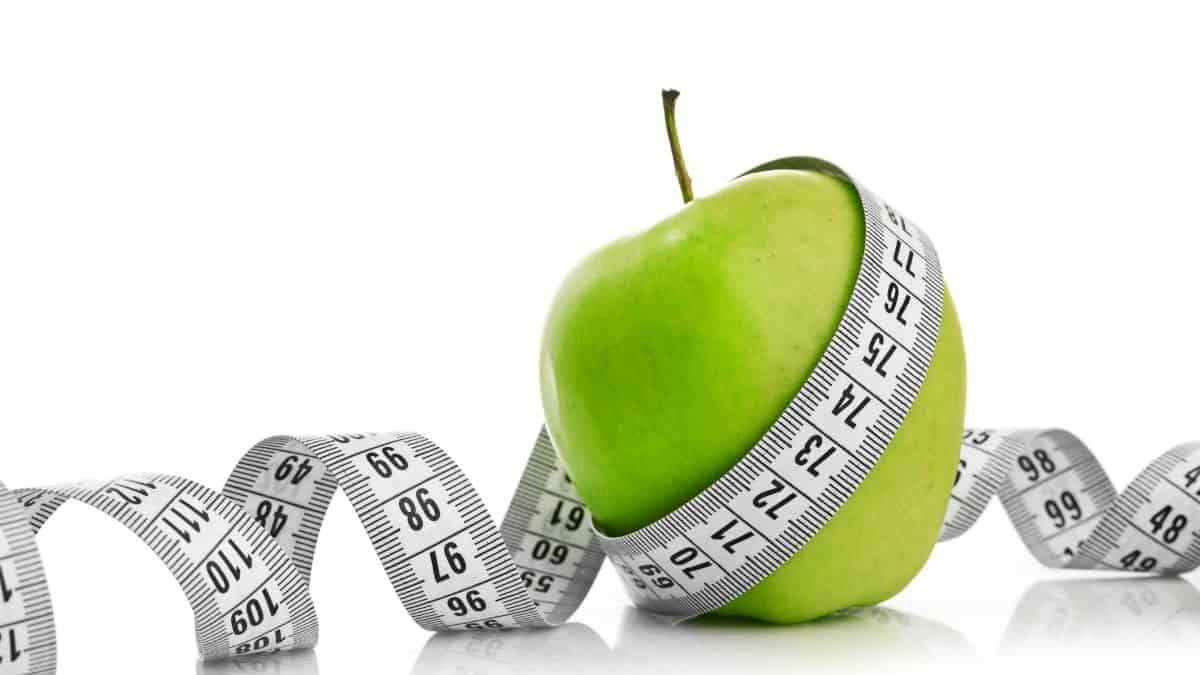
Stop letting your weight define you
The beginning of the path towards BED might have started with goals of eating healthier. Or a few pounds lost. But since diets don’t work and just set most folks up for fluctuations in weight, your relationship with food, eating and your weight can spiral.
The truth is: weight has little to do with health. Behaviors actually define health.
Also the truth: this is damn harder to believe than to talk about. But current research strongly supports that you can be healthy at any size, even though society would have us believe that only folks in teeny tiny bodies are able to win the health award. Can Really You Be Healthy At Every Size? (HAES Explained!)
Intuitive Eating offers you the opportunity to find your personal set point weight. This is the weight at which your mental and physical health thrives and is easy to maintain. Set Point Weight Theory: What It Is & How To Find It.
And as a follow-up to that first article about set point: What If I Don’t Like My Set Point Weight?
Learn to honor your own hunger
For chronic dieters, it is pretty common to not actually understand all that well when your body is trying to get your attention to eat. You’ve spent so much time and energy trying to shush your own body cues that your body might change how it is talking to you.
Don’t worry: your body is adaptable and creative and offers hunger cues in multiple ways. Kind of like your friend who is frustrated that you haven’t returned their call so they text you…and send you a message via IG, and then a snapchat.
“Hello!! Call me back! I won’t be ignored.”
If you’ve been missing the memo, here is how to start tuning in: How To Get Hunger Cues In 3 Easy Steps.
Get a good night’s sleep
No one, not even you, can function at their best if you’re sleep-deprived. Honor your own needs by getting 7-9 hours of sleep as often as you can. Being well rested helps to support your own healing and resilience.
If you’re typically sleeping far less than the recommended 7-9 hours, try going to bed 10 or 15 minutes earlier. Remember: changes do not need to happen overnight; baby steps add up to big progress (and healing).
Release guilt
Do you feel like you’re ever able to eat a meal without a heaping side of guilt?
Gorgeous, eating should feel good, both mentally and physically. If your food rules and restrictions are getting in the way of that, please know that you deserve to feel better. Much better.
Here is a good post to check out if guilt is your common eating companion: How To Stop Feeling Guilty After Eating.
Consider gentle movement
Notice how I didn’t use the word exercise? For binge eaters, exercise might be the punishment that you’ve sentenced yourself because you’ve been “bad” and binged again.
But really, exercise is here to feel good and to honor what our bodies are able to do. Exercise, like eating, is meant to feel good.
Exercise, when not overdone, offers us an outlet for stress as well as a boost of those feel-good endorphins. The key is to focus on movement that feels good and honors your body instead of using it as a punishment for past eating behaviors.
Consider your relationship with alcohol
Do you drink alcohol?
Do you find you’re able to enjoy a glass or two of wine and stop…or is it hard to stop once you’ve popped the cork (or opened your favorite box of wine?)
Like food, alcohol can be used to offer your body comfort and to feel like you’re in control when you have big feelings and emotions. But it is a tool that can be used for good…or in a way that doesn’t leave you feeling good.
If you’re drinking more than a drink or two most days, check out this post: Intuitive Drinking: How To Have A Healthy Relationship With Alcohol
Offer yourself additional self-care
Stress and anxiety are factors that make binge eating worse. While there is nothing wrong with using food as comfort, it is also important to have more than just one tool in the toolbox. Emotional eating is one great tool to have and use. Here are a few more tools that you can use to provide yourself with comfort and stress relief: Emotional Self Care.
My favorite emotional self-care? Journaling! If you’re new to journaling as a self-care strategy, I have a round-up of 40+ Gratitude Journal Prompts For Mind & Body to get the creative juices flowing.
How is Intuitive Eating helpful?
Binge Eating Disorder is incredibly harmful to your own relationship with your body, eating, and being able to trust your hunger and fullness cues.
Intuitive Eating is an evidenced-based approach to healing these relationships. It is a path to begin gently building trust with yourself and eating and to release those assumptions and rules that are making your life harder.
Intuitive Eating transformed by life for the better and it has for so many of my clients, too.
I invite you to get to know Intuitive Eating better with this blog post. It is where I recommend all my clients start reading: What Is Intuitive Eating? A Beginners Guide.
Key takeaways: binge eating recovery
Gorgeous, remember that binge eating is not your fault. The causes of why you’ve been struggling are complex and nuanced. You didn’t get here overnight and your recovery will not happen at the flip of a switch, either.
This is hard work to do, but you’re worth it. You deserve freedom from binge eating.
If you suspect that you have Binge Eating Disorder (BED), I do recommend seeking professional help.
Need more guidance? Be sure to check out my YouTube channel for more tips to help in your intuitive eating journey and take the no food rules quiz which will tell you what’s holding you back from truly finding food freedom and give you customized resources (and a workbook!) to overcome it!
OTHER POSTS YOU MIGHT LIKE
XOXO
-Colleen


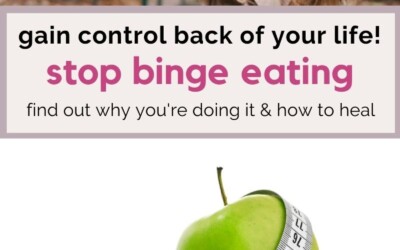

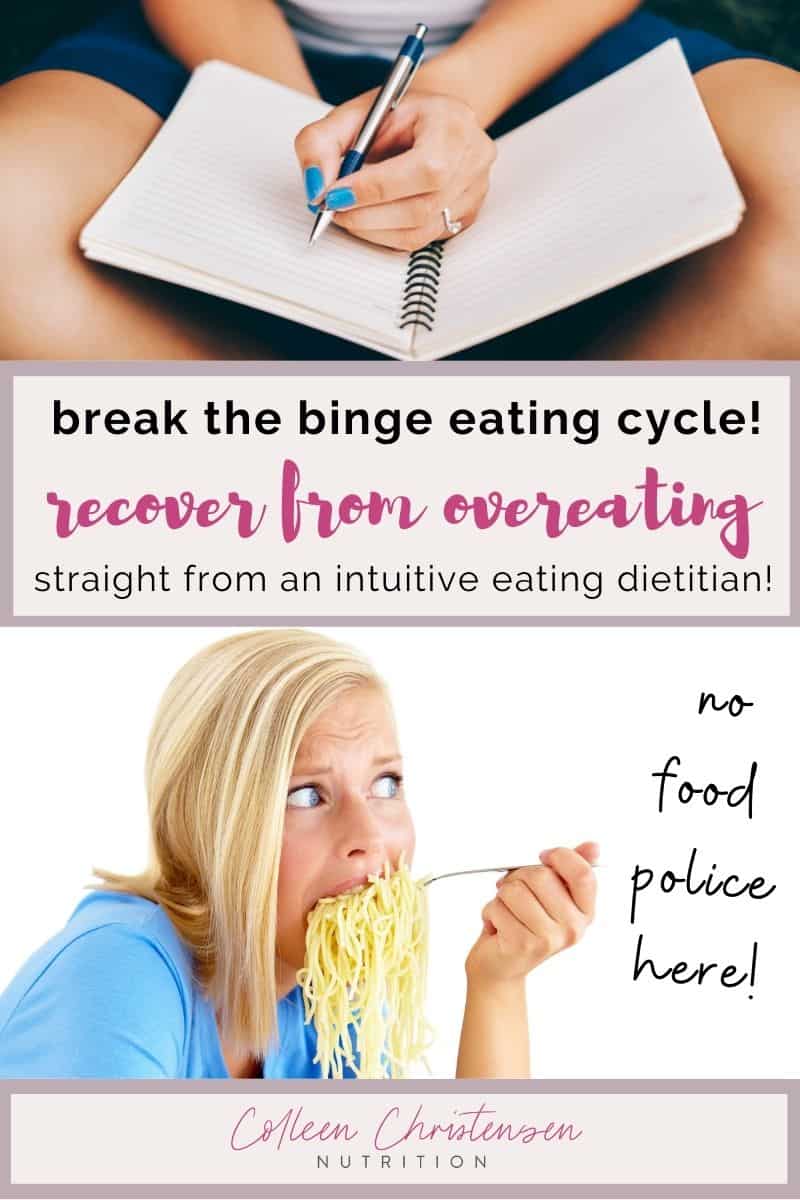
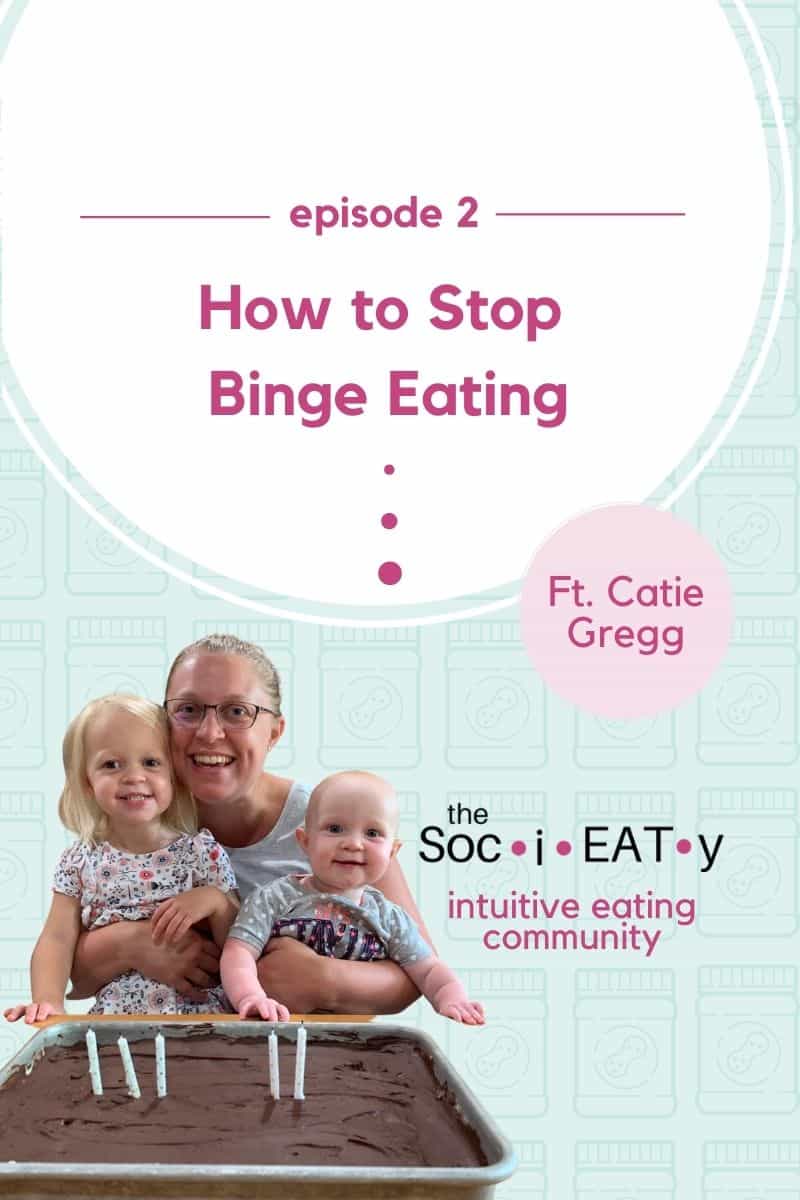
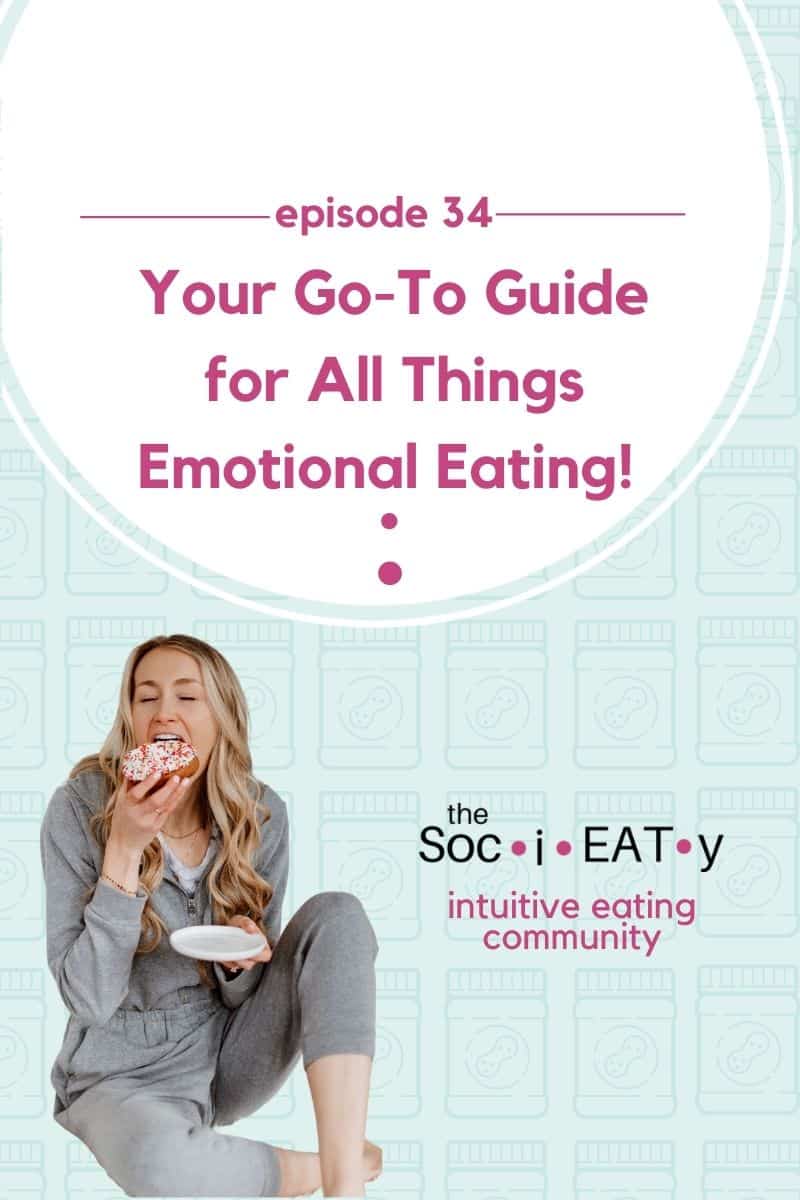

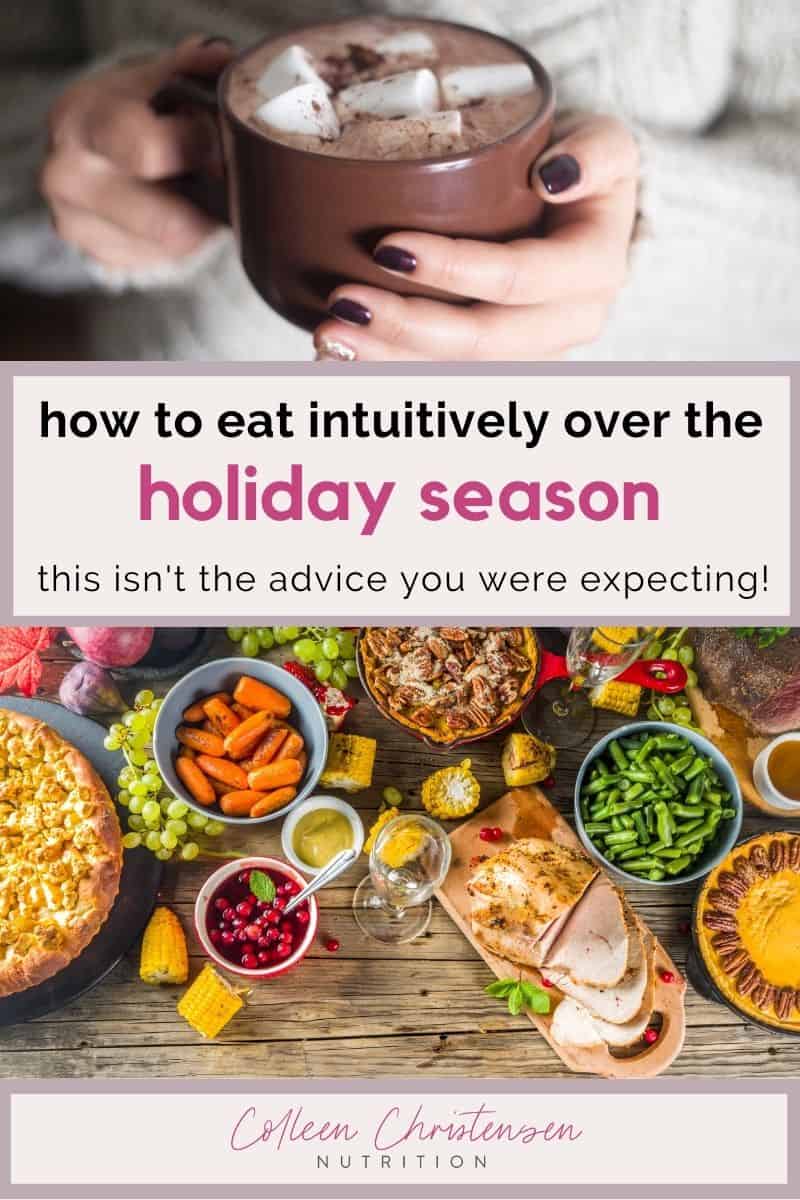
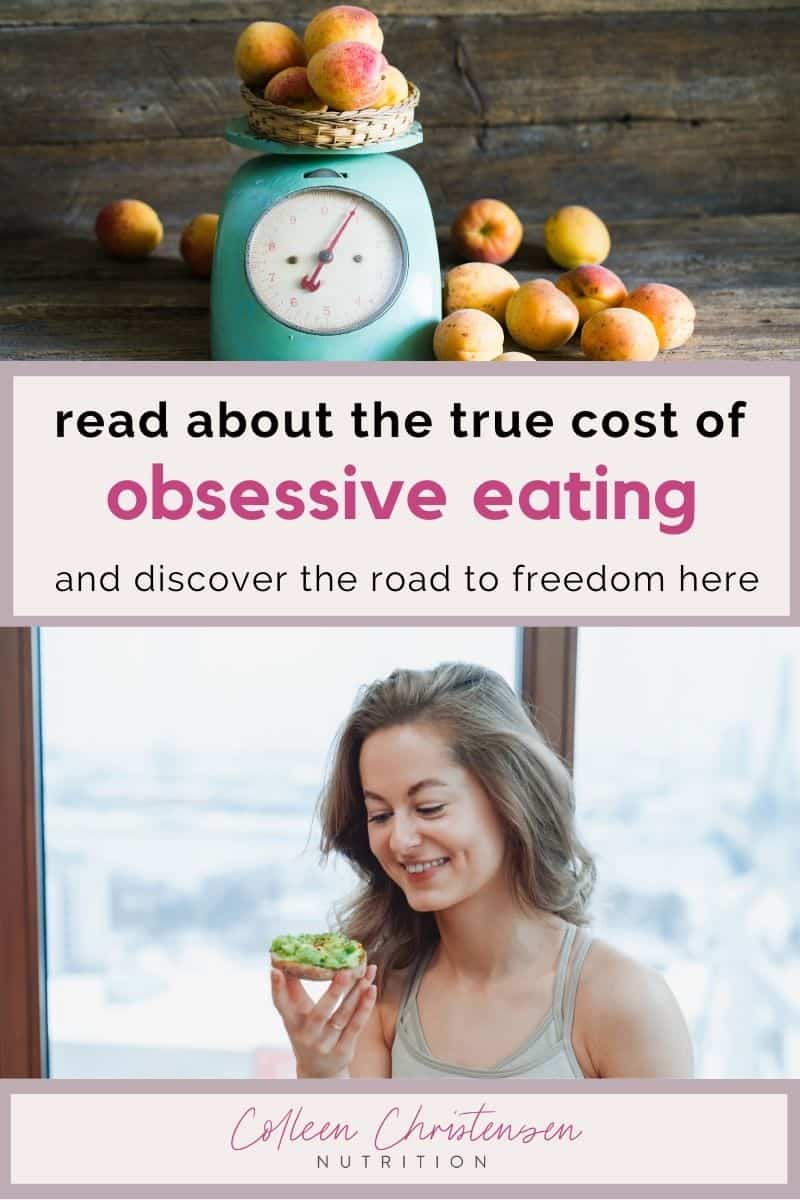


Leave a Reply